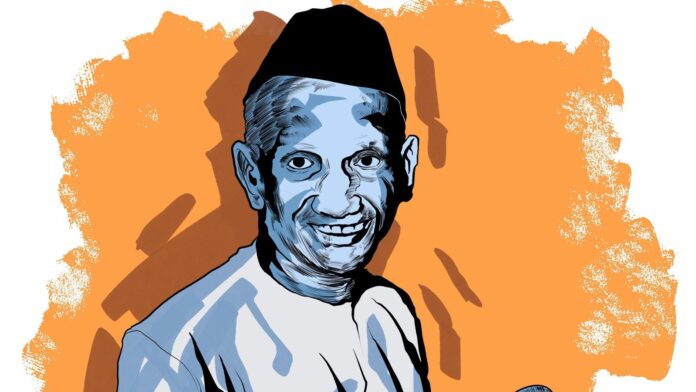NEW DELHI
:
Indian business over the years has had very few mavericks with the mix of audacity and controversy that Ramakrishna Dalmia, the founder of the Dalmia group, did. As much a product of his times as an architect of his destiny, he was a defiant and towering figure, his life a potent cocktail of outsized personality, political ambition and shrewd financial dealings. To that, he added strategic alliances, including his little-known piquant friendship with his neighbour Muhammad Ali Jinnah.
A capitalist with the heart of a revolutionary, Dalmia’s ambitions extended beyond boardrooms and balance sheets to the corridors of political power. Thus, Jawaharlal Nehru’s socialism left him unimpressed, though he offered his peacemaking services to Nehru and Jinnah’s sibling spats.
Born in 1893 in Rajasthan’s Chirawa, Dalmia instinctively waded into the intricacies of business with his famed Marwari acumen. By the 1920s, he had become a formidable Indian industrialist. With sugar as his entry point, he soon diversified into cement, textiles and newspapers, each acquisition solidifying his reputation as a business titan. At its peak, the group was second only to Tata and the Birlas.
But if there was a method to Dalmia’s expansion, it was only known to him. Thus, he acquired three jute mills from Andrew Yule and in the years following World War 2, purchased 50,000 American vehicles and jeeps, weapon carriers and command cars to refurbish and sell. In 1947, he bought Indian National Airways Ltd, one of the four major airlines in India at the time and changed its name to Dalmia-Jain Airways. Add to this collieries, distilleries, chemical and asbestos companies, and you have a gargantuan business behemoth run by a man who also found time to write A Guide to Bliss, Fearlessness and Divine Law.
Flamboyant personality
Dalmia’s personality was as expansive and flamboyant as his empire, with lavish parties, opulent residences, a sprawling fleet of luxury cars, not to mention his six marriages and 18 children. To him goes the credit for starting the first bioscopes in India, the first private light railways and the first private trunk call and telephone line from Dalmianagar in Bihar. Yet, his bravado was both his strength and his Achilles heel. His sense of invincibility led him to take risks that few others would dare, while his aggressive business strategies often brought him to the brink of ruin. But each time, he managed to claw his way back, demonstrating a remarkable resilience.
His political engagement was complex and multifaceted, often aligning with nationalist causes yet marked by an opportunistic pragmatism that made for strange alliances. A fervent supporter of the Swadeshi movement advocating for self-reliance in business, he was a part of the Rashtriya Swayamsevak Sangh and the Hindu Mahasabha. He even took part in gau raksha campaigns. Despite that he forged a curious friendship with Jinnah in his political journey, both men sharing a disdain for the British and colonialism.
One of his most controversial takeovers was the acquisition of The Times of India, then, as now, the largest English-language daily in India. In 1946, he orchestrated a complex series of transactions that gave him control of the paper, a move that alarmed the British. His takeover was financed through a combination of his own resources and substantial borrowings.
The Gandhi twist
Dalmia believed in the power of scale and was willing to leverage debt to fuel his expansion. It was a strategy that ultimately cost him heavily. By the 1950s his empire was hugely overleveraged and began dragging under its own weight. The government initiated investigations, and in 1956, he was convicted of embezzlement of securities and sentenced to two years of prison in Tihar Jail, mainly through the investigations of a young member of Parliament, Feroz Gandhi.
The saga of Dalmia and Feroze Gandhi is one of the most sensational chapters in India’s political history, intertwining power, scandal and drama. For the Times of India acquisition, Dalmia used funds from his various companies, including Bharat Insurance Company, in clear violation of corporate ethics. Feroz Gandhi laid bare these revelations in Parliament, sending shock waves through the country. The business, too, was now in distress and by the time he passed away in 1978, only a glimpse of its former glory remained.
After Dalmia died in 1978, the empire was divided among his seven sons, while a major chunk had already been taken over by his brother who formed the Dalmia Bharat group. The Times of India and Rohtas Industries, the two entities he was so attached to, went to his son-in-law Sahu Shanti Prasad Jain. Dalmianagar, the resistance of his empire, which housed chemical and cement factories was beset by union problems and Naxal violence and slowly closed down in 1984.
Despite the eventual shrinking of his group, Dalmia, a man who led a life on his terms, left an indelible mark on Indian business and politics.
#kaleidoscopic #life #Ramakrishna #Dalmia #capitalist #heart #revolutionary
